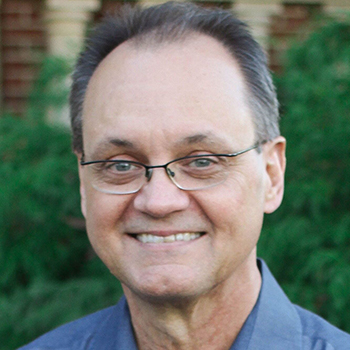Back to series



The Jesus Prayer
Click here to open a Print - Friendly PDF
According to a number of surveys, most Americans continue to believe in and practice prayer (over 90 percent).1 Although these statistics tell us something about the openness of Americans to interacting with something or someone beyond, they do not tell us about the relationship between core beliefs and prayer.
In my discussions with people, I frequently get a blank stare when I ask, “To whom do you pray?” It seems that many people have never thought deeply about the connection between our prayers and the character of the one to whom we pray. I believe our practice of prayer is shaped by our understanding of who God is, who we are as human beings, and what kind of world we live in.
For Christians there is no better place to go for instruction on prayer than to Jesus himself. Jesus’ most well known teaching on prayer is found in what has been referred to as the Lord’s Prayer (Matt. 6:9–13; Luke 11:2–4). I like to call it the Jesus Prayer. For the purpose of this article, we will use the text in Matthew 6, as found in the New International Version.
“Our Father in heaven.” The idea of addressing God as Father was very significant. In the Old Testament, God is referred to as a Father in relationship to his people (Deut. 32:6), and Israel is called God’s son in several places (Exod. 4:22; Hos. 11:1), but it is most significant that the fatherhood of God is directly connected to the relationship between God and the promised Messiah (2 Sam. 7:16; Ps. 89:27–28). The privilege of knowing and communicating with God as Father is based on our union with Jesus the Son. Through being united to the Son, we experience new birth (John 1:12) and are encouraged by the Holy Spirit to call out to God as Father (Gal. 4:4–7).
The knowledge of God’s Father-love is the first and simplest but also the last and highest lesson in the school of prayer. Prayer begins in the personal relationship with the living God as well as the personal, conscious fellowship of love with Him. In the knowledge of God’s Fatherness revealed by the Holy Spirit, the power of prayer will root and grow. The life of prayer has its joy in the infinite tenderness, care, and patience of an infinite Father who is ready to hear and to help —Andrew Murray, With Christ in the School of Prayer
The fatherhood of God is revealed most clearly through the words and actions of his Son, Jesus the Messiah (John 14:7–9). In Galatians 4:6, Paul tells us that it is through experiencing the fellowship of the Father and the Son that the Spirit moves us to pray. Having grounded prayer in the context of familial relationship, Jesus moves on to teach us about the Godcentered motives that should shape our requests.

“Hallowed be your name.” The word hallow is actually the verb form of the word holy, which means to be set apart. God is holy because he is unique. The prayer that God’s name be made holy is not a request that God would become something that he is not, but that we might recognize him for who he is. The prayer for God’s name to be hallowed is a prayer for our eyes to be opened to the greatness and goodness of God. In a day when spirituality tends toward nothing more than another tool for realizing our self-potential, we need to be reminded that our lives are most in line with reality when we develop a God-centeredness that places his glory at the center of reality.
Our priorities also begin to align with God’s priorities as we pray, “your kingdom come, your will be done on earth as it is in heaven.” It is only through God’s liberating presence (word and spirit) that the effects of sin and corruption are overcome. Though we know that the full realization of God’s promises will not come until Jesus returns, we pray and live in faith and hope asking God to overcome sin and darkness in and around us.
If prayer is talking to God, who is this God we talk to? At the level of our human experience, we can assert the following: how we talk to people, and what we say, will to a large extent be governed by how well we know them. —Graeme Goldsworthy, Prayer and the Knowledge of God
“Give us today our daily bread.” Bread was a daily necessity for Jesus’ early followers, so this request for “daily bread” would have put them in touch with the reality of which we all need to be reminded: God’s gracious provision for our daily existence. God’s grace comes to us from the very beginning of the Bible’s story when he creates the physical world and provides for all of the needs of Adam and Eve.
One translation of this request reads, “Give us what we need for today.” This is very similar to the prover “Give me neither poverty nor riches; Feed me with the food that is my portion” (Prov. 30:8 nasb). Abundance can be dangerous to us because it can blind us to reality. Jesus knows how easy it is for us to be blinded by our self-centeredness, so he graciously gives us a God-centered prayer that works to refocus our vision.
Unless we pay close attention, we might miss the fact that Jesus instructs us to pray for our daily bread. None of us exists on his or her own; rather, we are born and live within a web of relationships (parents, relatives, friends, coaches, teachers, coworkers, etc.) that are necessary for our well-being. The Jesus Prayer reminds us that if we are aligned with reality (the kingdom of God), we will regularly speak to our Father about the practical well-being of others.
“Forgive us our debts as we also have forgiven our debtors.” If you have a large debt that you cannot pay, receiving forgiveness of the debt by the one to whom you are indebted is good news! The Old Testament tells of a celebration called Jubilee (see Lev. 25–26), held every fifty years, during which people were forgiven all their debts, and those who had been enslaved were liberated. Jesus may have been thinking of just such a time when he taught his disciples about prayer.
Most religions believe that prayer brings us into contact with God, but in the case of Jesus and his instructions about prayer, not just any God will do. The God that Jesus proclaims is the one who enters into our world to wipe away our debt and liberate us from the power and penalty of sin.
If we take the time to consider it, we will admit that we often fail to love God with our whole being and we often fail to love other people who are made in his image. The truth is that no matter how often we have tried to be true to our calling as God’s representatives on earth, we have fallen short. Our great debt means that on the final day of reckoning, we will find ourselves so far overdrawn that we will have to declare complete bankruptcy. When we ask God to forgive us our debts, we count on his being as he has revealed himself to be in Jesus. He is the “Father in heaven” who has sent his Son to wipe out our debt through his death and fill us with the Spirit who causes us to cry, “Abba, Father.”
Some people are deeply troubled by Jesus’ teaching about forgiveness in these verses, because he seems to base forgiveness on our having forgiven others. It is easy to see why someone would have this concern in light of Jesus’ comments just a few verses later, “For if you forgive men when they sin against you, your heavenly Father will also forgive you. But if you do not forgive men their sins, your Father will not forgive your sins” (Matt. 6:14–15). This is a troubling passage that is hard to fit into the biblical notion of God’s unconditional offer of forgiveness.

There is no clear resolution to this tension, but it is always helpful to look at things in light of the entire biblical story. As receivers of God’s free gift of salvation, we have been radically forgiven. Likewise, we are called to be like Christ in our forgiveness of others. It seems Jesus is saying that to be his disciple is to have entered into a whole new reality that is experienced through our identification with Jesus the Messiah. It is a liberating experience, so if we have truly embraced this new reality, we will be the kind of people who forgive others.
“Lead us not into temptation, but deliver us from the evil one.” This last request zeros in on the fact that we experience opposition to our walking in the way of the Father. Moreover, contrary to what we might assume, our Father in heaven is not first of all committed to making our journey through this present life as easy as possible.
“Lead us not into temptation” at first glance appears puzzling, because it seems to imply that we need to request that our Father not lead us into a situation where we will be tripped up. What kind of father would be motivated by a desire to see his kids tripped up? This is where we need a little understanding of the original language to get a subtle but important distinction. The word that is translated temptation (peirasmos) can refer either to testing or to temptation—as a trap.
We know that God does not tempt us because he wants us to stumble (James 1:13), but he does sometimes lead us into and through trials on our life journey, as he did with Jesus when God led him “into the wilderness to be tempted by the devil” (Matt. 4:1–12). Jesus, our example, prayed to be delivered from the agony of the cross but entrusted himself to the Father. Likewise, we should pray to be delivered from the testing brought about by living in an evil world even as we recognize that whatever God plans or allows comes from the hand of our Father in heaven.
We want, in fact, not so much a Father in Heaven as a grandfather in heaven—a senile benevolence who, as they say, “liked to see young people enjoying themselves,” and whose plan for the universe was simply that it might be truly said at the end of each day, “a good time was had by all.” —C.S. Lewis, The Problem of Pain
In conclusion, the Jesus Prayer is centered on knowing God as Father. It also teaches us that the experiential knowledge of God as Father is a privilege that is open to all who come to him through Jesus our mediator. Next Jesus teaches us that knowing God’s fatherly love should motivate us to desire that the Father’s goodness and greatness be known throughout the whole earth. Having experienced the blessed rule of our loving Father, we want others to experience the kindness, mercy, and love of God.
Jesus, being the truth-teller that he is, also discloses to us that the coming of the kingdom of God in this age does not do away with disappointments, pain, temptations, and injustices, and so forth. Because of unfulfilled hunger (physical and spiritual), we are told to pray for ourselves and others that the Father would give us this day our daily bread. Because this age is also filled with sinful actions (our own and those of others), we must pray that the Father would forgive us our debts, and we must forgive others. Finally, we are taught to recognize the providence of God in the trials we experience. Prayer is the cry of God’s children who live in the tension that is created by our experience of God’s fatherly care and the frustration of our human experience in this broken world. Thus it is in the context of prayer that we are made more like our Savior who taught us to pray.
| Notes: 1. George Gallup, Jr., and Timothy Jones, The Next American Spirituality (Colorado Springs: Cook, 2000), p. 76. |
|||

Bill Smith
CSLI City Director, AtlantaBill Smith is the Director of C.S. Lewis Institute Atlanta. His desire is for others to grasp God’s perspective and experience God’s presence throughout all of life. Bill teaches and facilitates discussions in a variety of contexts including schools, churches, businesses, conference/retreat centers, coffeehouses, bookstores, and homes. His interest in the life and writings of C.S. Lewis has resulted in a book titled Conversations on the Question of God with C.S. Lewis and Sigmund Freud. Bill holds a B.S. in Biblical Studies from Toccoa Falls College and a M.Div. from Trinity Evangelical Divinity School.

 COPYRIGHT: This publication is published by C.S. Lewis Institute; 8001 Braddock Road, Suite 301; Springfield, VA 22151. Portions of the publication may be reproduced for noncommercial, local church or ministry use without prior permission. Electronic copies of the PDF files may be duplicated and transmitted via e-mail for personal and church use. Articles may not be modified without prior written permission of the Institute. For questions, contact the Institute: 703.914.5602 or email us.
COPYRIGHT: This publication is published by C.S. Lewis Institute; 8001 Braddock Road, Suite 301; Springfield, VA 22151. Portions of the publication may be reproduced for noncommercial, local church or ministry use without prior permission. Electronic copies of the PDF files may be duplicated and transmitted via e-mail for personal and church use. Articles may not be modified without prior written permission of the Institute. For questions, contact the Institute: 703.914.5602 or email us.
-
Recent Podcasts
Ralph Waldo Emerson’s Philosophy and Influence
by David George Moore on July 26, 2024Ralph Waldo Emerson was a gifted nineteenth century...Read More
-
The Side B Stories – Nate Sala’s Story
by Jana Harmon, Nate Sala on July 19, 2024
-
Terrorism Through the Eyes of Faith
by Dennis Hollinger on July 12, 2024
-
Recent Publications
Hasn’t Science Proven That Belief in God Is an Outdated Superstition?
by Sharon Dirckx on July 1, 2024Many assume that scientific practice and belief in...Read More
-
Has the Bible Been Corrupted as Some Muslims Claim?
by Andy Bannister on June 1, 2024
-
Seeing Jesus Through the Eyes of Women
by Rebecca McLaughlin on May 15, 2024
0
All Booked
0.00
All Booked
0.00
All Booked
22194
C.S. Lewis’s The Abolition of Man Live Online Small Group 8:00 PM ET
https://www.cslewisinstitute.org/?event=c-s-lewiss-the-abolition-of-man-study-course&event_date=2024-10-02®=1
https://www.paypal.com/cgi-bin/webscr
2024-10-02

Next coming event
Days
Hours
Minutes
Seconds
C.S. Lewis’s The Abolition of Man Live Online Small Group 8:00 PM ET
On October 2, 2024 at 8:00 pmSpeakers

Bill Smith
CSLI City Director, Atlanta
Team Members

Bill Smith
CSLI City Director, AtlantaBill Smith is the Director of C.S. Lewis Institute Atlanta. His desire is for others to grasp God’s perspective and experience God’s presence throughout all of life. Bill teaches and facilitates discussions in a variety of contexts including schools, churches, businesses, conference/retreat centers, coffeehouses, bookstores, and homes. His interest in the life and writings of C.S. Lewis has resulted in a book titled Conversations on the Question of God with C.S. Lewis and Sigmund Freud. Bill holds a B.S. in Biblical Studies from Toccoa Falls College and a M.Div. from Trinity Evangelical Divinity School.





